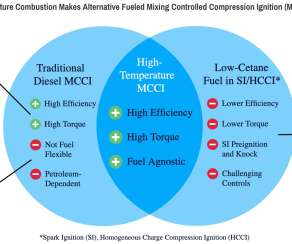New ORNL non-precious metal catalyst shows promise as low-cost component for low-temperature exhaust aftertreatment
Green Car Congress
SEPTEMBER 23, 2015
Researchers at Oak Ridge National Laboratory (ORNL) have developed a ternary mixed oxide catalyst composed of copper oxide, cobalt oxide, and ceria (dubbed “CCC”) that outperforms synthesized and commercial platinum group metal (PGM) catalysts for CO oxidation in simulated exhaust streams while showing no signs of inhibition—i.e.,
































Let's personalize your content